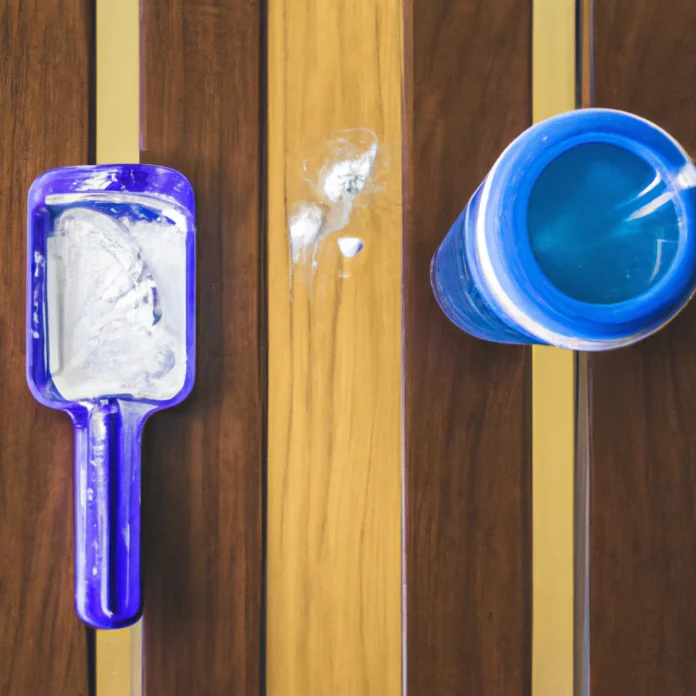Creatine Monohydrate: How to Use It for Strength and Power
Creatine monohydrate has long been recognized as a leading supplement for athletes and fitness enthusiasts seeking to enhance their strength and power. In this detailed guide, we will explore the science behind creatine, its benefits, optimal usage, and the best practices to maximize its effects. By understanding how to effectively use creatine, you can harness its potential to elevate your performance to new heights.
What is Creatine Monohydrate?
Creatine monohydrate is a naturally occurring compound found in small amounts in certain foods and synthesized by the body from amino acids. It primarily resides in the skeletal muscles, where it plays a vital role in the production of adenosine triphosphate (ATP), the energy currency of the cell. When engaging in high-intensity exercise, ATP is rapidly depleted, and creatine serves as a crucial energy reserve, helping to replenish ATP levels quickly.
The Benefits of Creatine Monohydrate
Utilizing creatine monohydrate can yield a multitude of benefits, particularly for those involved in strength training and high-intensity sports. Below are some of the most significant advantages:
- Increased Muscle Strength: Studies consistently demonstrate that creatine supplementation can lead to significant increases in muscle strength, allowing individuals to lift heavier weights and perform more repetitions.
- Enhanced Power Output: Creatine enhances power during short bursts of high-intensity activity, making it a favorite among sprinters, weightlifters, and athletes in explosive sports.
- Improved Recovery: Creatine can help reduce muscle cell damage and inflammation following intense workouts, facilitating quicker recovery times and reducing soreness.
- Increased Muscle Mass: With increased strength comes the ability to train harder, which contributes to muscle hypertrophy. Creatine also promotes water retention in muscle cells, leading to an increase in muscle size.
How Does Creatine Work?
Creatine’s primary mechanism involves the replenishment of ATP. During high-intensity exercise, ATP is broken down to produce energy. Creatine donates a phosphate group to ADP (adenosine diphosphate) to regenerate ATP. This process allows for sustained energy production during intense activities, enabling athletes to push their limits.
Types of Creatine
While creatine monohydrate is the most researched and widely used form, several other types are available on the market. Each type has its unique properties:
- Creatine Ethyl Ester: This form is touted for better absorption but lacks the extensive research backing of monohydrate.
- Buffered Creatine: Marketed as gentler on the stomach and more efficient, though research is limited.
- Creatine Hydrochloride: Known for its solubility and absorption, it may cause less water retention.
How to Use Creatine Monohydrate
To maximize the benefits of creatine monohydrate, proper usage is essential. The following guidelines outline the most effective approaches:
Loading Phase
Many individuals opt for a loading phase to saturate their muscles with creatine quickly. This phase typically involves taking 20 grams of creatine per day, divided into four 5-gram doses, for 5 to 7 days. This method leads to faster results, although it is not mandatory.
Maintenance Phase
After the loading phase, a maintenance dose of 3 to 5 grams per day is recommended. This dose helps maintain elevated creatine levels in the muscles without the need for loading. Consistency is key, and taking creatine at the same time each day can enhance adherence.
Timing of Intake
The timing of creatine consumption can influence its effectiveness. While some studies suggest that taking creatine post-workout may be more beneficial for muscle recovery and growth, others indicate that pre-workout consumption can enhance performance. Ultimately, the most important factor is consistent daily intake.
Mixing Creatine
Creatine monohydrate is typically mixed with water or a carbohydrate-rich beverage to enhance absorption. Combining it with carbohydrates can lead to a more significant insulin response, promoting better uptake of creatine into the muscles.
Potential Side Effects of Creatine
While creatine monohydrate is generally safe for most individuals, some may experience mild side effects:
- Gastrointestinal Distress: Some users may experience stomach cramps or diarrhea, especially during the loading phase. Gradually increasing the dosage can mitigate this.
- Water Retention: Creatine can cause water retention in muscles, leading to temporary weight gain.
- Kidney Concerns: There have been concerns about kidney health, particularly in individuals with pre-existing conditions. However, studies have shown no adverse effects in healthy individuals.
Best Practices for Using Creatine Monohydrate
To ensure you gain the maximum benefits from creatine monohydrate, consider these best practices:
- Maintain Hydration: Adequate water intake is crucial when using creatine, as it draws water into the muscles.
- Combine with a Balanced Diet: Creatine works best when paired with a diet rich in proteins, healthy fats, and carbohydrates.
- Monitor Your Progress: Keep track of your strength gains and overall performance to assess the effectiveness of creatine supplementation.
“Unlock your true potential with creatine monohydrate and experience the strength you never knew you had.”
Buying Creatine Monohydrate
For those interested in incorporating creatine monohydrate into their fitness regimen, we recommend checking out high-quality products. One reliable source for health supplements is Myprotein. They offer a range of creatine products that can suit various needs and preferences.
Conclusion
In conclusion, creatine monohydrate is a powerful supplement that can significantly enhance strength and power for athletes and fitness enthusiasts alike. By understanding how to use creatine effectively, including appropriate dosing and timing, individuals can unlock their true potential. For those looking to elevate their performance, the right creatine product can make all the difference. For more insights on health and lifestyle, visit Lifestyle Home.

